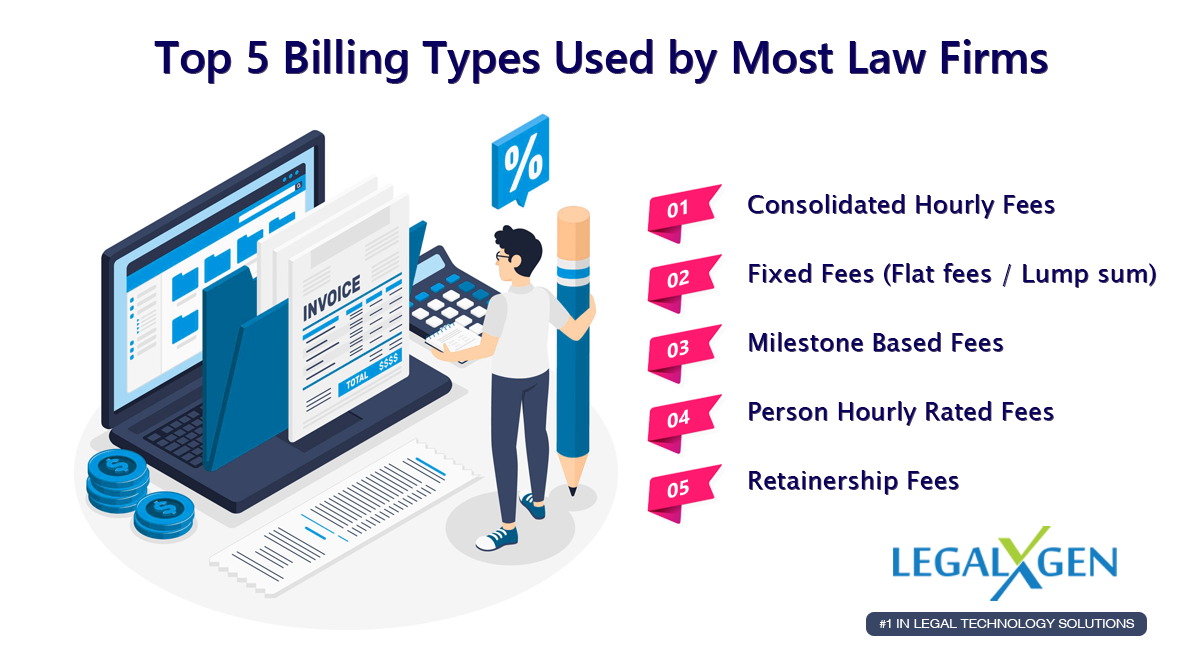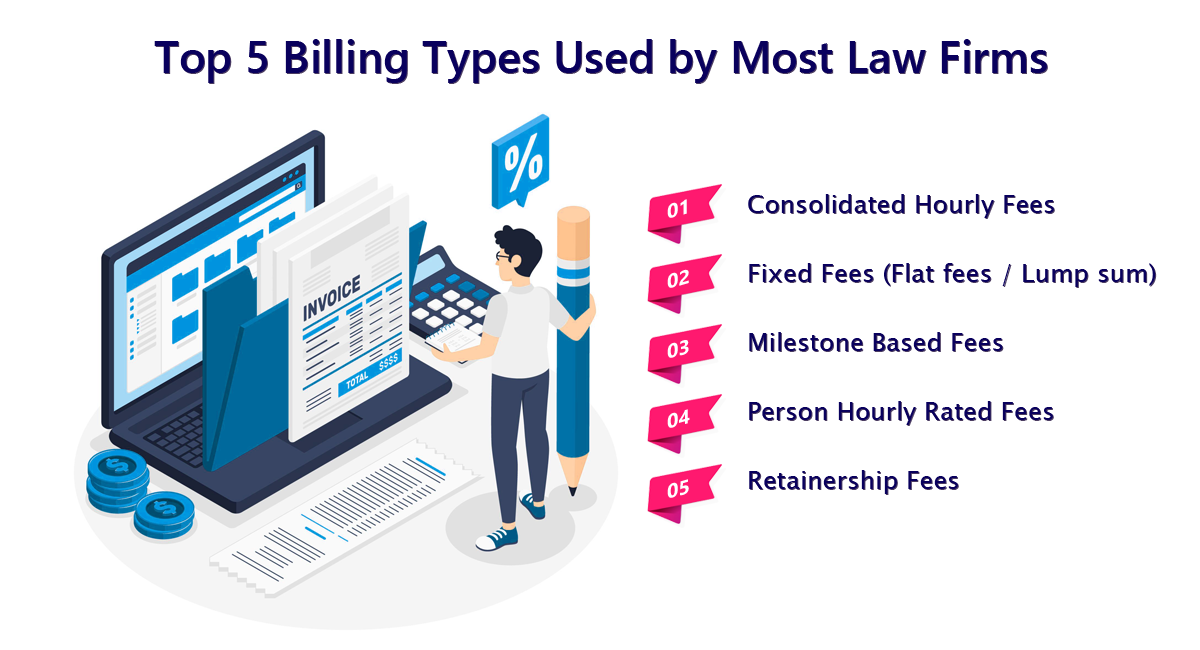

Have you ever realized how crucial it is to understand the billing policies and types of billing methods for any law firm?
A clear, consistent law firm billing policy is vital for saving your law firm’s valuable time and money, and understanding it is a must. It provides something for lawyers and workers to refer to and keeps everyone in the loop.
Are you curious about the many sorts of billing? Here’s a quick guide on the five most common billing types for law firms.
- Consolidated Hourly Fee:
As the name suggests, consolidate hourly billing means that all the associates working on the case will be paid at the same hourly rate.
In other words, if Lawyer A and Lawyer B are both working on the same case, their hourly rates will be the same, say $500/hr.
The hourly rate is the most widely used. However, because the required expertise and experience level of the attorney varies by the type of case, as does the cost, the prices vary depending on the type of law, the complexity of the case, and the work being done by the attorney.
- Fixed Fee (Flat fee / Lumpsum):
Fixed billing is a one-time fixed cost for a particular matter.
To put it another way, if you approach a lawyer for a property issue, you will be charged a flat fee of $400.
However, the charge varies depending on the geographical area, the type of law, and the specifics of the case. There are additional exceptions to a flat fee. Though the details about the flat charge’s limits are included in the fee agreement, if events occur that alter the usual course of the case, the attorney might impose additional costs, that can be hourly or fixed.
- Milestone Based Fees:
The above two billing options are suitable for short-term projects (those lasting from a week to a month). But think of the projects that last two, three, four, or more months? This is where milestone-based billing comes in handy.
Milestone billing is an extension of per-feature or requirement billing in which specific activities or sequences of tasks are designated as key events – or “milestones” – in a project’s scope of work or says any matter.
Before the project begins, the client agrees on a billing value for each milestone. After each milestone is reached, the client pays the billing value. A long-term matter includes many of these milestone-based fees and each milestone has a different charge.
For Example:
Client X has contacted some firm regarding a matter that entails two key tasks: negotiating and documentation. Each of these tasks will be treated as a separate milestone, with separate payments of $2000 and $1,000, respectively, to be paid once each milestone has been completed, with completion of all milestones indicates that the task has been completed. - Person Hourly Rated Fee:
This is as simple as the name implies; different associates working on the matter have varying hourly rates.You must be wondering, WHY?
Attorneys’ hourly rates are determined by a variety of criteria, including the subject matter, the attorney’s years of experience, the intricacy of the matter, and the attorney’s overall overhead.
To make it clearer, imagine that X and Y are working on a matter, and X’s hourly fee is $500, while Y’s hourly price is $400. Despite the fact that they are both working on the same project, their hourly rates are different.
- Retainership Fees:
A retainership agreement between a legal firm or a professional lawyer and its client means that the client will be charged a fixed fee for a fixed period of time (monthly, quarterly, etc.).
For instance, X is a retainer client who pays $5000 each month to some law firm. This means the law firm is charging $5,000 per month for working on various works (matters/projects) for client X.
However, retainer fees do not guarantee a successful outcome or final output. If services turn out to be less expensive than expected, a portion of the retainer money may be reimbursed.Furthermore, retainer payments are rarely representative of the overall ultimate cost of the services supplied.
There are numerous billing methods, but we want you to know that mastering the fundamentals and making simple decisions can have a significant influence on your business.
And using LegalXGen, you can quickly integrate a variety of billing alternatives! Only LegalXGen gives you complete control over your firm, from invoicing to timesheets and all in between.
Schedule a free demo today to learn why so many law firms rely on LegalXGen every day.

Market Research Analyst with a Master’s in Marketing and Analytical Experience.
 English
English French
French German
German